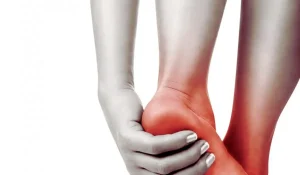Memories are quite significant for humans and they play a part in almost all aspects of life as we know it. Memory is a function that is associated with the brain and there are instances where this function can be affected by different conditions. Amnesia is one such serious condition that can affect the memory power of the brain.
Based on the extent of damage caused by amnesia, a person can sometimes fully or partially lose their memory. Sometimes, amnesia is also induced temporarily by the usage of various sedatives and hypnotic drugs.
There are different types of amnesia and different causes that induce this condition, which will be discussed in detail in this article.
What Causes Amnesia?
Different causes can injure amnesia in a person. These causes are mainly categorized into two;
Neurological causes and psychological causes.

⚜ Neurological Causes
As the name suggests, neurological causes involve any kind of damage or issues to the brain that can cause problems with its functioning or activities. Some of the possible neurological causes that can lead to amnesia include;
- Intoxication by alcohol
- Brain tumours
- Head injuries including concussions or traumatic brain injuries(TBIs)
- Cerebral Hypoxia (damage to the brain caused by lack of oxygen)
- Epilepsy or seizure
- Stroke
- Toxins or heavy metal poisoning
⚜ Psychological Causes
Along with physical causes, amnesia can also be induced by deep disturbances to mental health or mental peace. Some conditions that can trigger amnesia in humans include;
- Post-traumatic stress disorder(PTSD)
- Dissociative disorders
Types Of Amnesia – Anterograde V/S Retrograde Amnesia
Mainly, there are two types of Amnesia. They are Retrograde amnesia and Anterograde amnesia. While these two are the major types of amnesia, keep in mind that they are not mutually exclusive. This means that a person can have both of these conditions at the same time.
⚜ Anterograde Amnesia
This particular case of amnesia is characterized by the inability of the brain to create new memories owing to the damage or issue that it has encountered. In this case, the major part of the brain that is affected is the medial temporal lobe and the media diencephalon.
The majority of cases of anterograde amnesia are caused by one or more issues like long-term alcoholism, head trauma, stroke, lack of proper nutrition, cerebrovascular events, and so on.
For a person suffering from anterograde amnesia, they will not be able to form new memories. In extreme cases, this condition will not allow the person to learn new things or retain any new information but such conditions are often rare. In most cases, the condition is temporary.
⚜ Retrograde Amnesia
This type of amnesia is characterized by the inability of a person to recall memories before the onset of amnesia but they will be able to record new memories after the incident.
In almost all the reported cases, the major causes that have contributed to the condition are chronic alcoholism, hypoxia, stroke, cerebrovascular accidents, and so on. For people suffering from this condition, it seems to be easier for them to recall events that had occurred recently than older memories.
The hippocampus in the brain is the center that is associated with creating new memories and this kind of amnesia can result from brain damage to any part of the brain other than the hippocampus. This condition is also often temporary and it is recoverable by exposing them to memories from the loss.
How Is Amnesia Diagnosed?
There are different ways to determine amnesia in a person. For a healthcare professional, it is very easy to detect the kind of issue that has been bothering them just by asking a series of questions about their life and the events that surround them.
Different specifically designed tests and scans are also available to make a definitive conclusion. Determining the kind of test that one should go through is determined by your doctor after analyzing your symptoms.
Also Check:- What Are 5 Ways To Improve Mental Health? Easy Tips To Follow!
Anterograde V/S Retrograde Amnesia – Treatment
One fact that you should be aware of is that there is no definitive treatment for amnesia. We have seen that some different issues or causes can result in amnesia. So, the best way to counter the issue is by finding out the reason and treating it, if it is a treatable one. As there are a lot of different issues that can result in both retrograde or anterograde amnesia, the treatment methods also vary accordingly.
In almost all cases, people suffering from anterograde amnesia where the condition affects the process of how to form or store memories, is often a permanent issue. Instead, if the condition is retrograde amnesia, where the issue is associated with how you retrieve a memory, chances are high that it improves over time.
Also Read:- How Does Diabetes Affect Your Mental Health? Tips To Overcome!
Conclusion
Being such a difficult condition, amnesia cannot be predicted or prevented beforehand. It is also quite unfortunate to note that there is no specific medication or fixed treatment pattern for this condition.
But if given proper care, there are ways to tackle this condition. One effective way to stay ahead is to look for any kind of symptoms related to the issue. In case you are experiencing any kind of symptoms related to amnesia, it is always better to get checked and follow the instructions of your medical practitioner. This will ensure that both you and your brain are on track and you remain healthy.







